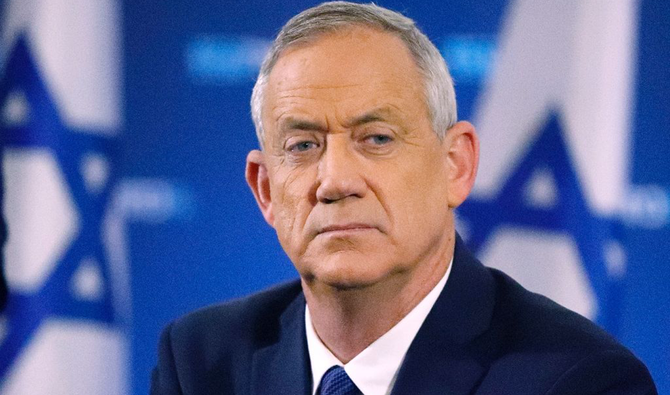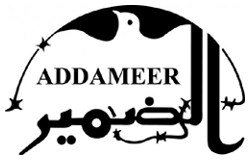The Israeli government this month approved a proposal that allows the military to indefinitely withhold the bodies of Palestinians who have been killed by the Israeli army. The proposal was made by Defense Minister Benny Gantz.
Gantz is the main political rival of Prime Minister Benjamin Netanyahu. He also serves in the role of “alternate prime minister.” If Netanyahu does not renege on the coalition government agreement he signed with Gantz’s Blue and White alliance in April, Gantz will become prime minister in November 2021.
Since his official induction to the tumultuous world of Israeli politics, Gantz — supposedly a centrist — has adopted hawkish stances against Palestinians, especially those in Gaza. This way, he hopes to widen his appeal to Israeli voters, the majority of whom have migrated en masse to the right of the political spectrum.
But Gantz’s latest “achievement” — that of denying dead Palestinians a proper burial — is not entirely a novel idea. In fact, in Israel, using corpses as bargaining chips has been the modus operandi for decades.
According to the defense minister’s logic, the withholding of bodies will serve as a deterrent against terror attacks. However, judging by the fact that the practice has been in use for many years, there is no proof that Palestinians have ever been discouraged from resisting Israel’s military occupation due to such strategies.
However, the new policy is, according to Israeli officials, different from the previous practice. While, in the past, Israel has only kept the bodies of alleged Palestinian attackers who belonged to “terror groups,” this practice will now apply to all Palestinians, even those with no political affiliation.
Aside from Gantz’s attempt to shore up his hawkish credentials, the military man-turned-politician wants to improve his chances regarding the on-off, indirect negotiations between Israel and Palestinian groups in Gaza. Israel believes there are four soldiers currently being held in Gaza, including the bodies of two who were killed during the devastating Israeli war on the besieged Strip in July 2014. However, Hamas maintains that Hadar Goldin and Shaul Aaron are, in fact, still alive and in custody.
For years, low-level talks between Hamas and Israel have been aimed at securing a deal that would see an unspecified number of Palestinian prisoners freed in exchange for the detained Israelis. By withholding yet more Palestinian bodies, Tel Aviv hopes to strengthen its position in future talks.
The reality, however, is quite different. The Israeli army has not been returning the bodies of Palestinians it accuses of attacking its soldiers for months. This affects all Palestinians, regardless of their purported political affiliations.
Undoubtedly, withholding corpses as a political strategy is illegal under international law. Article 130 of the Fourth Geneva Convention states that anybody who is killed during armed conflicts should be “honorably buried… according to the rites of the religion to which they belonged.”
If Gantz is truly convinced that withholding Palestinian bodies — while maintaining the Israeli military occupation — will bring about whatever skewed definition of peace and security he has in mind, he is sadly mistaken.
Ramzy Baroud
However, the Israeli Supreme Court resolved in September last year — exactly a year before the Israeli Cabinet’s recent decision — that the army has the right to continue with the practice of withholding Palestinian bodies. While it is not the first country to use the dead as a bargaining chip, the practice in Israel has lasted as long as the conflict itself and has been utilized in myriad ways, with the intention of humiliating, collectively punishing and bargaining with the Palestinians.
During the Dirty War of 1976 to 1983, tens of thousands of Argentinians went missing. Students, intellectuals, trade unionists and thousands of other dissidents were killed by the country’s regime in an unprecedented genocide. The bodies of most of these victims were never recovered and they became known as “los desaparecidos” (the disappeared). Similar ordeals have been seen in other countries in many parts of the world. In Israel, however, the practice is not linked to a specific military regime or a particular leader: This means Palestine’s “disappeared” span several generations.
Israel maintains what are known as the “cemeteries of numbers.” Salwa Hammad, a coordinator for the Palestinian National Campaign for Retrieval of the Bodies of Martyrs, estimates there are six such cemeteries in Israel, although the authorities refuse to divulge any details regarding their nature or exactly how many Palestinians are buried there. The Jerusalem Legal Aid and Human Rights Center estimates there are 255 Palestinian bodies in these cemeteries, with 52 of them having been there since 2016.
Here, Palestinian victims are known not by name, but by a number, which only Israel can cross-reference to identify the actual individual. In 2011, the body of Hafez Abu Zant was released after being held in one of these cemeteries for 35 years, Bernama reported. Hammad said: “If the remains are in a cemetery of numbers, we get it back in a black bag — some bones, some soil and maybe their clothes.”
Following the Israeli Cabinet’s approval of his proposal, Gantz bragged about his ability to apply “an extensive policy of deterrence since entering office.” The truth is that Gantz is merely posturing and taking credit for a protracted Israeli policy that has been applied by all previous governments, regardless of their political orientation.
If Gantz is truly convinced that withholding Palestinian bodies — while maintaining the Israeli military occupation — will bring about whatever skewed definition of peace and security he has in mind, he is sadly mistaken. Such policies have proven to be a complete failure in the past. While Palestinian families are devastated by this hideous practice, the detention of corpses has never quelled a rebellion, neither in Argentina nor in Palestine.
• Ramzy Baroud is a journalist and the Editor of The Palestine Chronicle. He is the author of five books. His latest is “These Chains Will Be Broken: Palestinian Stories of Struggle and Defiance in Israeli Prisons” (Clarity Press, Atlanta).





